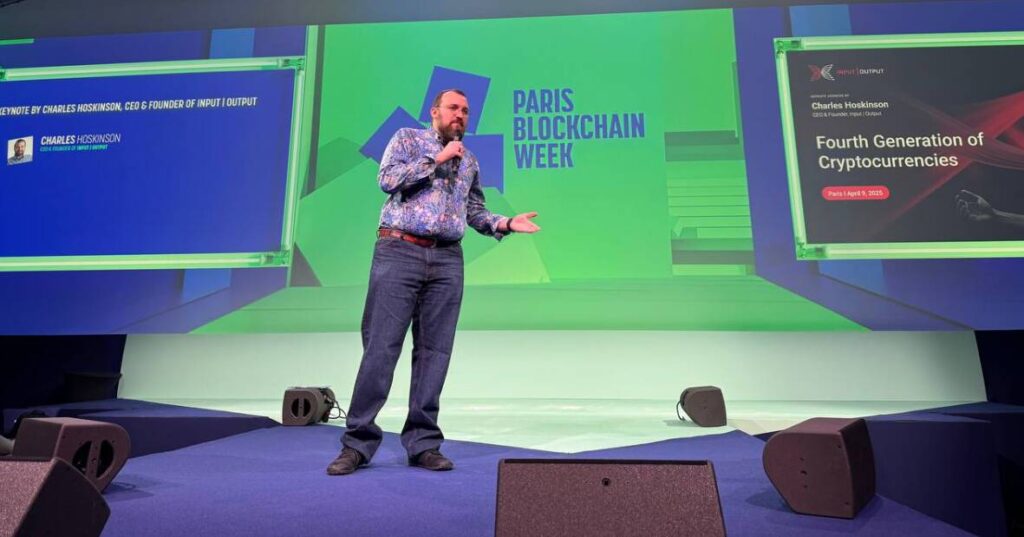The Cardano Foundation is gearing up to release an audit report concerning its treasury holdings amidst fresh allegations of misappropriation involving approximately $600 million worth of ADA tokens. This scrutiny comes as a result of claims made by community member and non-fungible token artist Masato Alexander, who accused Cardano’s founder, Charles Hoskinson, of manipulating the network’s ledger using a so-called “genesis key.” According to Alexander, this maneuver allowed Hoskinson to gain control over $619 million in ADA during the Allegra hard fork that took place in 2021.
Historical transaction records show that a substantial transfer happened on October 24, 2021, when over 318 million ADA tokens were moved, enabling funds to flow from reserve pools into staking or treasury allocations. Despite this, Hoskinson pointed out that ADA redemptions remained open for an additional three years post-transaction, asserting that the majority of those tokens were reclaimed by the original buyers—a lengthy process spanning seven years.
“IOG never gave itself 350 million unclaimed ADA. This is a lie. The vast majority was claimed, and the remaining that was forfeited after seven years of waiting was donated to Intersect,”
Hoskinson expressed his distress over the community’s response to these allegations, revealing that he feels a disconnect with some members due to the mistrust arising from the current situation. He emphasized this sentiment in a recent post, mentioning that he intends to modify how he engages with the community after the audit report’s release.
As a key figure in the blockchain community and a co-founder of Ethereum, Hoskinson spoke at the Paris Blockchain Week 2025 about the importance of fostering collaborative economics within the rapidly evolving crypto industry, particularly in light of increased competition from traditional tech companies venturing into blockchain, stimulated by a clearer regulatory framework.
Cardano Foundation’s Audit Report on Treasury Holdings
The Cardano Foundation is preparing a crucial audit report amidst allegations of misappropriation of a significant amount of ADA tokens. Here are the key points surrounding this situation:
- Audit Report Release: The Cardano Foundation is set to release an audit report regarding its treasury holdings, which is pivotal for transparency.
- Allegations of Misappropriation: Fresh allegations claim that Charles Hoskinson manipulated the Cardano ledger, involving around $600 million worth of ADA tokens.
- Community Concerns: Community members, including NFT artist Masato Alexander, have raised concerns about potential misconduct by Hoskinson.
- Transaction Details:
- A specific transaction dated October 24, 2021, shows the transfer of over 318 million ADA tokens from reserve pools into staking or treasury allocations.
- ADA redemptions reportedly remained open for an additional three years after the aforementioned transaction.
- Response from Hoskinson: Hoskinson insists that most ADA was redeemed by their original buyers and asserts that the remaining unclaimed tokens were donated.
- Community Reaction: Hoskinson expressed feeling “deeply hurt” by the community’s mistrust following the allegations and indicated changes in how he interacts with the community post-audit.
- Future Changes: Following the audit, Hoskinson plans to modify his engagement strategy on social media and community Q&A sessions.
These developments could impact readers in various ways:
- Awareness of Cryptocurrency Governance: Understanding the implications of treasury audits and the importance of transparency in cryptocurrency projects.
- Insight into Community Dynamics: The tension between community members and project leaders illustrates the significance of trust and communication in blockchain initiatives.
- Potential Investment Considerations: Investors may need to closely follow the outcomes of such controversies, as they can influence the value and credibility of the ADA token.
Cardano’s Treasury Audit: Implications and Community Reactions
The recent announcement from the Cardano Foundation regarding an upcoming audit on its treasury holdings has come at a tumultuous time, following serious allegations of misappropriation involving an astounding $600 million worth of ADA tokens. This development not only puts the spotlight on Cardano, but also shines a light on the broader cryptocurrency ecosystem, revealing underlying tensions that can affect community trust and adoption.
Competitive Advantages: The proactive stance of the Cardano Foundation in commissioning an audit could serve as a significant competitive advantage, especially in an industry where transparency is paramount. By publicly addressing these allegations, Cardano may not only quell investor fears but also reaffirm its commitment to integrity and governance within blockchain technology. This could attract cautious investors who value accountability, especially amidst rising scrutiny of crypto projects and their financial practices.
Moreover, as the broader market grapples with concerns about fraud and mismanagement, Cardano’s response can position it as a leader in ethical blockchain practices. The implications of such transparency could also resonate well with future partnerships and collaborations, particularly in light of competition from established tech firms entering the space seeking reliable and ethical blockchain solutions.
Competitive Disadvantages: However, the allegations against founder Charles Hoskinson and the turbulent community reaction present significant challenges. While the audit represents a step towards transparency, skepticism has بالفعل taken root among community members, as notably expressed by NFT artist Masato Alexander. The inherent distrust that now festers within the community could lead to shifts in engagement and participation, with some stakeholders potentially withdrawing their support during this uncertain period. A community divided can hinder the platform’s natural evolution and stifle innovation, setting a daunting backdrop for the upcoming audit results.
In the context of community morale, the response from Hoskinson—a figure who has already faced criticism in the past—has been tinged with disappointment and hurt. This emotionally charged reaction may amplify community polarization, as supporters rally around him while critics seize the opportunity to question his leadership. The stakes are high; if the audit fails to satisfactorily address allegations, it might lead to irreparable damage to his credibility and, by extension, that of the Cardano project.
Potential Beneficiaries and Challenges: The audit could benefit a range of stakeholders, including investors who prefer a transparent ecosystem. However, it also poses a risk for those who have heavily invested in ADA, as further allegations could diminish its perceived value. Developers closely watching Cardano’s moves may find this an opportune moment to either align their interests with a stable platform or pivot towards competitors who are perceived as more transparent and secure.
As this situation unfolds, Cardano is at a crossroads, attempting to balance both community trust and the harsh realities of public scrutiny in the crypto space. The ongoing developments will undoubtedly impact the competitive landscape, making it essential for stakeholders to stay vigilant and informed.
















